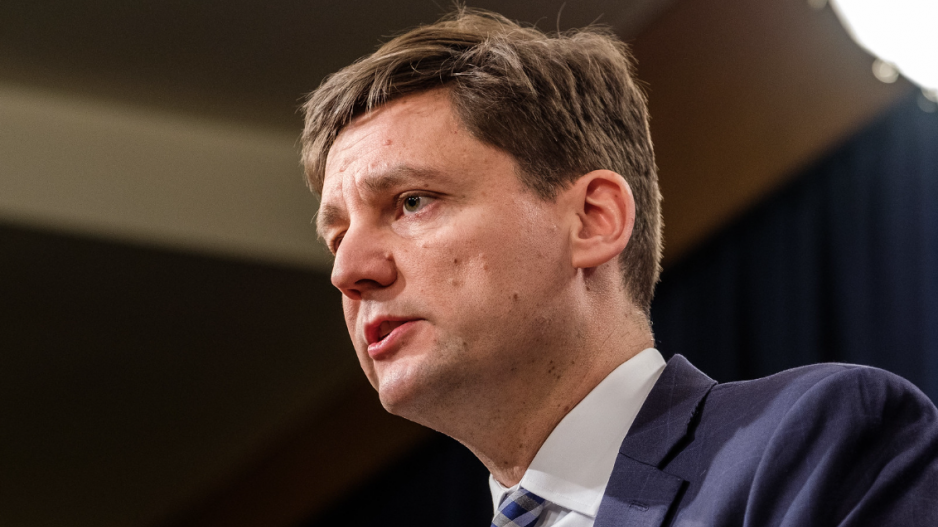Premier David Eby expressed extreme frustration more than a year ago when he was repeatedly asked if he was going to call an early election.
“I don’t know how many times I can say it, I am committed to a fixed election date in B.C.,” he said in December 2022, shortly after swearing in his first cabinet.
“They want our government to take action, they’ve not said to me they want an election,” the premier added in February 2023.
“We talked to a lot of people [and] not one person said, ‘I really hope you call a general election soon,’” Eby deadpanned four months later.
New Democrats, at the time, framed the questions as outrageous nonsense from , hell-bent on stirring up trouble. Why call an election, they asked, when the new premier has been gifted an enormous lead in the polls from a popular predecessor, billions in surplus cash in the provincial treasury and half a term left in the government’s mandate?
Oh, what a difference two years makes.
The election the BC NDP faces now is far more difficult than the one it could have chosen to face 20 months ago.
The right-wing parties have merged into one foe, eliminating any hope of a vote-split. The new premier’s bold reforms have failed to produce the promised visible results. The party’s lead has vanished into a statistical tie with the BC Conservatives. The money is all gone; in its place, instead, is the largest deficit in provincial history.
That’s left New Democrats jammed when it comes to crafting the upcoming election campaign.
Had the NDP forced an early vote in late 2022 or early 2023, it could have run a change campaign. Eby had a loaded 100-day action plan that would have made for a bold election platform, showing a marked difference between himself and preceding premier John Horgan.
He decided, instead, to dump all his ideas out in one fell swoop and promise results that would be visible to the public before he had to go back to the polls.
"I'm setting down a marker today on these priorities for our government: housing, health care, the environment, public safety," Eby said in October 2022, shortly after winning the race.
Two years later, New Democrats can claim very few victories in any of those areas.
Housing is upended by the rollercoaster of federal interest rate changes, but affordability for homeowners and renters is still severely lacking.
Health care has descended into chaos, with perpetual emergency room closures across the province — five in the Interior alone over the Labour Day long weekend, stranding people hours from reliable emergency care.
Increases to the carbon tax, and other environmental measures, have sparked an affordability backlash and caused political headaches for the governing party with almost no decrease in actual pollution emissions and even worse droughts and wildfire seasons.
Public safety is an unmitigated disaster for the NDP, stretching from its decriminalization and drug policies worsening street disorder, straight on through to its inability to get a handle on the revolving door of repeat offenders and violent random attacks in Vancouver.
Eby says he’s making progress on all the files. But he’s out of time. The election is Oct. 19. He gave himself a 20-month window, and it wasn’t enough. Had he called an election, and secured a full four-year term, he’d still have another two years to show solutions in key areas.
The premier is in the worst of all positions: Having deployed his best ideas, without enough time to fully enact them, and as a result having very little to show for them.
Instead of running a change election, the NDP now finds itself having a change election run against it. BC Conservative Leader John Rustad senses anger from the electorate at the NDP’s failure to deliver on its promises after seven years in power. All he has to do is light the spark.
New Democrats, meanwhile, show no indication they recognize the danger on the horizon.
Their election ads paint Rustad as a “career politician” even though he’s served in office fewer years than their own veteran ministers.
The election campaign is locked in with an underwhelming message about having accomplished a lot together, but with more to do.
Officials point to record fundraising, as if no governing party before has ever raised enormous amounts of money and still found themselves thrown out of office (paging the 2017 BC Liberals).
All of this is backstopped by the NDP’s bewildering fascination with abstract budgetary numbers, FTEs, units and other meaningless metrics that governments in their declining years love to obsess over.
It feels like the NDP should be pivoting. But the party says it doesn’t need to. Much like the decision to forgo an early election, it could end up being a costly mistake.
Rob Shaw has spent more than 16 years covering B.C. politics, now reporting for CHEK News and writing for Glacier Media. He is the co-author of the national bestselling book A Matter of Confidence, host of the weekly podcast Political Capital, and a regular guest on CBC Radio.



